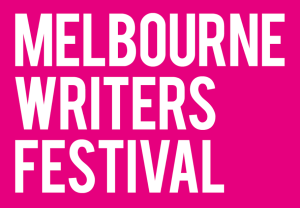 The 2015 Melbourne Writers Festival is underway and apart from my Veronica Mars squeeing sessions a few other sessions have been of some comparatively mild interest. Apologies to the rest of the festival—but hey, you’re the ones who brought Rob Thomas in.*
The 2015 Melbourne Writers Festival is underway and apart from my Veronica Mars squeeing sessions a few other sessions have been of some comparatively mild interest. Apologies to the rest of the festival—but hey, you’re the ones who brought Rob Thomas in.*
Media Matters: Popular vs Highbrow – Friday 21st August 2015 Fed Square Deakin Edge
In this debate—hosted by the festival’s Program Manager Jo Case—writer and critic Patrick Allington took the part of traditional highbrow elite criticism, and writer and researcher Beth Driscoll took the part of popular criticism.
Beth Driscoll makes the point that sites like Goodreads and Amazon democratise the way books are criticised and reviewed. And the way in which readers can access and interact with reviews and organise into communities. Popular reviews are emotionally based and connect meaningfully to the reader. They are read primarily to discover new books and to extend the experience of a book.
Patrick Allington stated that to criticise is to assume a level of intellectual mastery. While he doesn’t want to be seen as a snob or an elitist we perhaps need critics to hold books to a standard of excellence. But then how to define excellence and move its definition with the times? Patrick’s primary responsibility is to the book, not the reader, wanting to generate and drive debate.
I am still struggling to find not just my voice as a reviewer but my mindset. What makes a good review? What should I be focussing on if not the aspects I already focus on. My own tendency is toward the popular way while also feeling deeply illegitimate having developed an intolerance to academic style writing. Jargon and academish is a malignancy that spreads until all meaning is obscured, to the point where thousands of words can be written wherein absolutely nothing has been said. It’s how academics keep pumping out multiple papers based on one project. Shh, don’t tell anyone the secret.
I believe we need balance between the two. Sure, I want to share the feelings generated by the book. I want to know how pretty it is and what the cover feels like. But I’m also interested in the deeper analysis of the book by those who know (or purport to know) how to analyse these things at a level I can’t, to help me better understand what I’ve read from a perspective I’m not familiar with.
How to be Funny – Friday 21st August 2015 ACMI The Cube
I have to say, one of my bugbears is getting excited over panels that promise one thing and deliver something else. And look, the something else is likely to be just as interesting and worthwhile as what was promised but chances are you’re there for what was promised. Such was the case with ‘How to be Funny’. Until the last ten minutes, that is, when an audience question reminded the panel what the panel said it would talk about. Que sera, sera.
The session was hosted by George McEnroe, a writer, broadcaster and comedian. She was joined by Alexandra Neill, who’s many roles include writer, arts administrator and blogger, and Luke Ryan, a freelance writer and comedian.
Comedy is an art form close to my heart. I hope I can aspire to write it well one day but for now I’ll have to make do with silly quips and being a smart-arse. Of the many things discussed, the fact that comedy should not have borders is key. Anything at all can be funny—but it must be done right, it must be done well, and it needs a deeper meaning. Comedy should disrupt the order of our world and make us think. It is a powerful tool that can be used to confront the audience’s own assumptions and prejudices.
No topic should be off-limits—only the why and the who. It all depends on the purpose of the joke and what position of power the person making it holds.
This year’s festival looks and feels much more diverse in its topics than in previous years. And perhaps this is because the festival this year is not so much for the writers than, as the header remarks, for everyone who reads. While an overarching theme can go far in holding an event together, there have been years where perhaps it has been too exclusive. Thankfully this year’s array of sessions kinda kicks arse. I recommend checking out Melbourne Writers Festival homepage and getting yourself out and about.
*Pro-tip: all sessions can be made 100% better by screening a Veronica Mars episode after each one and having Rob Thomas comment on the making of.

